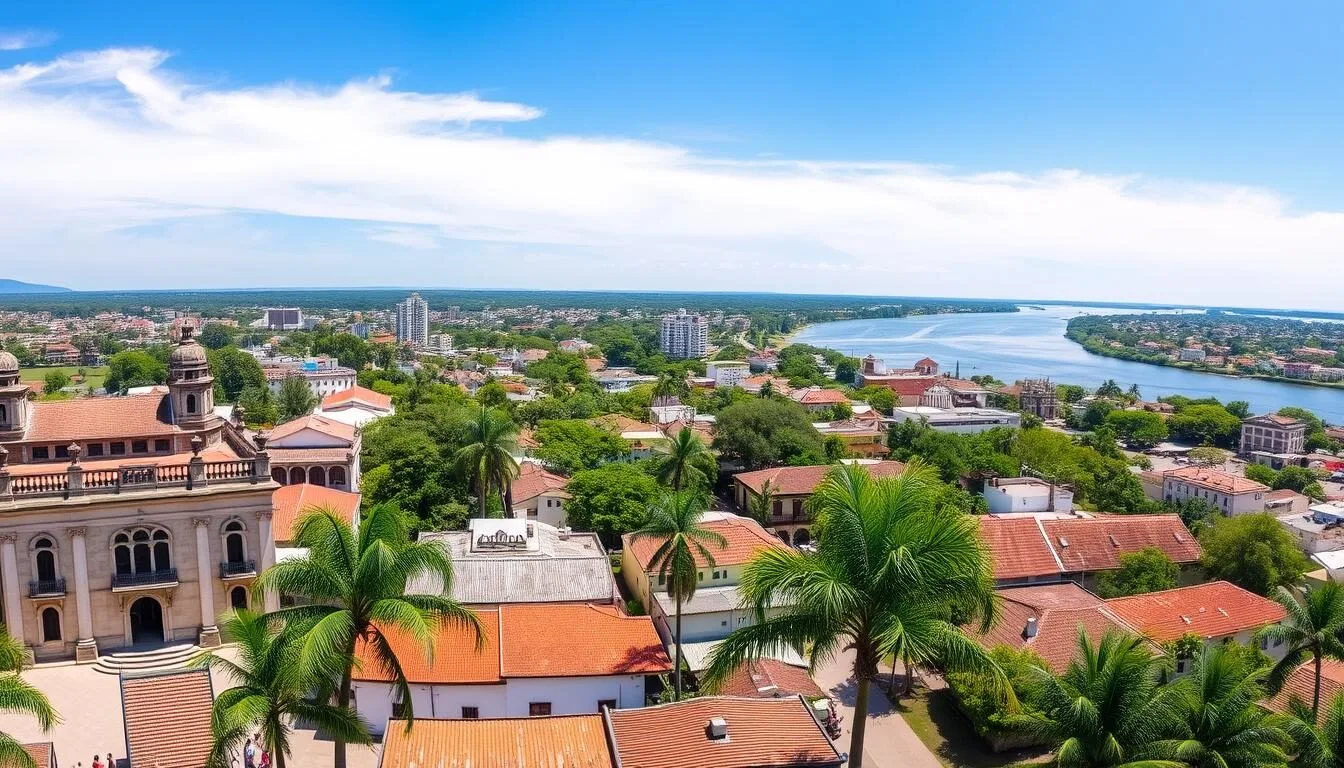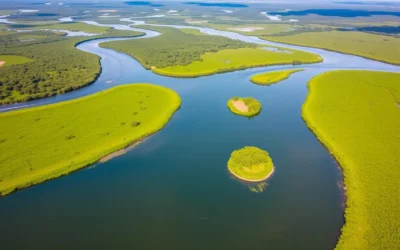✓ Accommodations✓ Flights✓ Rental Cars✓ Tours & Activities
Did you know that Paraguay is the only country in the world where over 90% of the population speaks both official languages fluently? This unique bilingual nation, where Spanish and indigenous Guaraní are seamlessly interwoven in daily life, offers travelers an authentic South American experience unlike any other. Tucked between Brazil, Argentina, and Bolivia, this landlocked gem remains one of the continent’s least-visited countries—making it perfect for travelers seeking genuine cultural immersion without the crowds.
Why Visit Paraguay?
Paraguay offers a fascinating blend of indigenous Guaraní culture, Spanish colonial heritage, and untouched natural landscapes. From the vibrant streets of Asunción to the tranquil Jesuit Missions and the wild Chaco region, Paraguay rewards curious travelers with authentic experiences, fewer crowds, and exceptional value.
Perfect For Travelers Who:
- Seek off-the-beaten-path destinations
- Enjoy cultural immersion over mass tourism
- Are interested in history, indigenous crafts, and nature
- Want a budget-friendly South American experience
- Appreciate authentic local interactions
When to Visit
The best time to visit Paraguay is during the dry season from May to September when temperatures are milder. October to March brings hot, humid weather (often exceeding 100°F/38°C), but this is also when many colorful festivals take place, including the vibrant Carnival celebrations in Encarnación in February.
Ready to Explore Paraguay?
Start planning your journey to this hidden South American gem with great flight deals.
Top Things to Do in Paraguay
From UNESCO World Heritage sites to wildlife-rich wetlands, Paraguay offers diverse experiences for every type of traveler. Here are the must-see attractions that showcase the best this country has to offer.
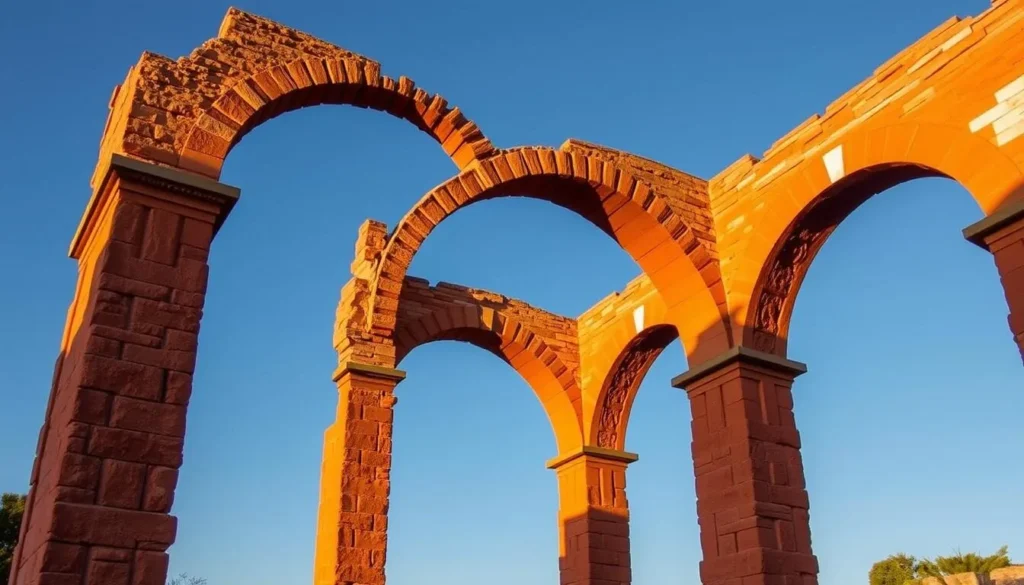
1. Explore the Jesuit Missions
The Jesuit Missions of La Santísima Trinidad de Paraná and Jesús de Tavarangüe are Paraguay’s most impressive UNESCO World Heritage sites. Dating back to the early 1600s, these once-magnificent cathedrals and residences were built by European missionaries. Today, the red sandstone ruins stand as a testament to the country’s complex colonial history and architectural achievements.
Located near Encarnación in southern Paraguay, these sites offer a glimpse into the unique social experiment of the Jesuit reductions, where indigenous Guaraní people lived and worked alongside the missionaries. The ruins are particularly stunning at sunset when the red stone glows in the fading light.
Experience Paraguay’s UNESCO Sites
Book a guided tour to fully appreciate the history and significance of these remarkable ruins.
Find Guided Tours
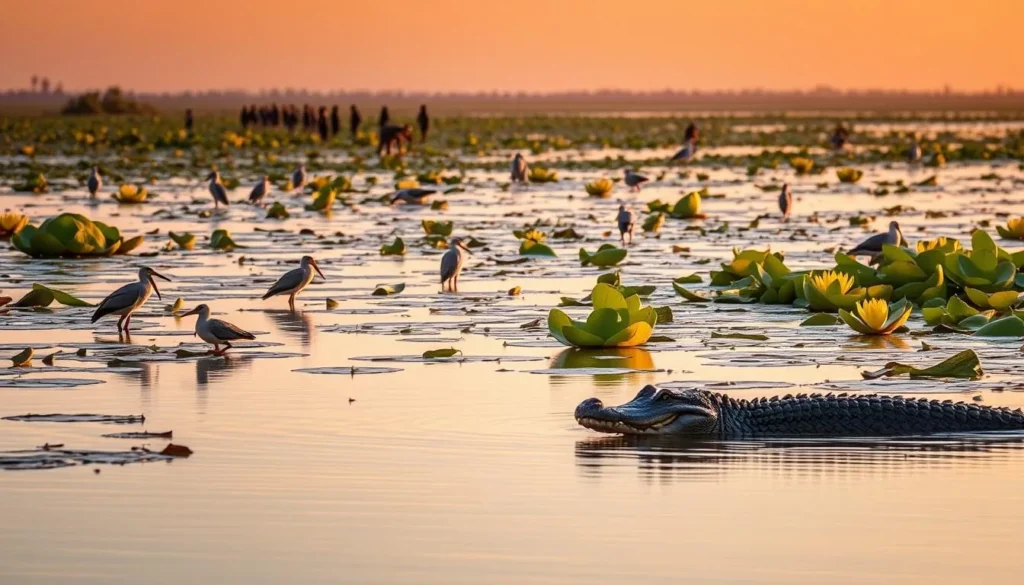
2. Wildlife Watching in the Pantanal Wetlands
While Brazil’s portion of the Pantanal gets more attention, Paraguay’s share of these massive wetlands offers equally impressive wildlife viewing with far fewer tourists. Unlike the dense vegetation of the Amazon, the open landscapes of the Pantanal provide unobstructed views of the diverse wildlife that calls this region home.
Visitors can spot rare species like the giant anteater, jaguar, capybara, and hundreds of bird species. The best way to explore is by boat or on guided tours from the town of Bahía Negra. Early morning and late afternoon offer the best wildlife viewing opportunities when animals are most active.
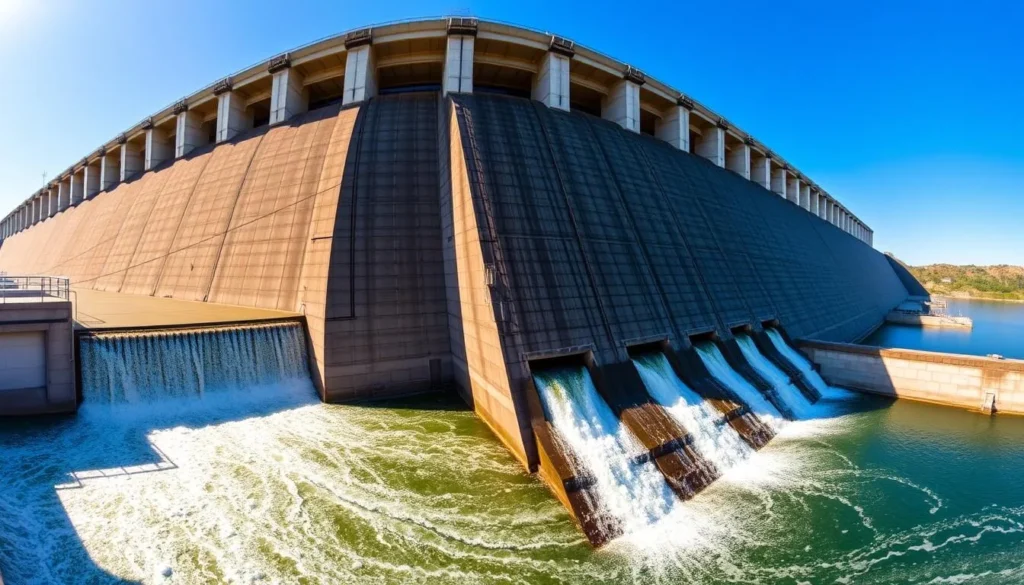
3. Marvel at the Itaipu Dam
The Itaipu Dam, shared with Brazil, is one of the world’s largest hydroelectric plants and a modern engineering wonder. This massive structure generates nearly 90% of Paraguay’s electricity and is powerful enough to produce more energy than 12 nuclear plants combined.
Visitors can take guided tours of the facility to learn about sustainable energy production and the dam’s construction. The evening light shows, where colorful illuminations dance across the dam’s surface accompanied by music, are particularly impressive. The dam is located near Ciudad del Este, making it an easy day trip from the city.
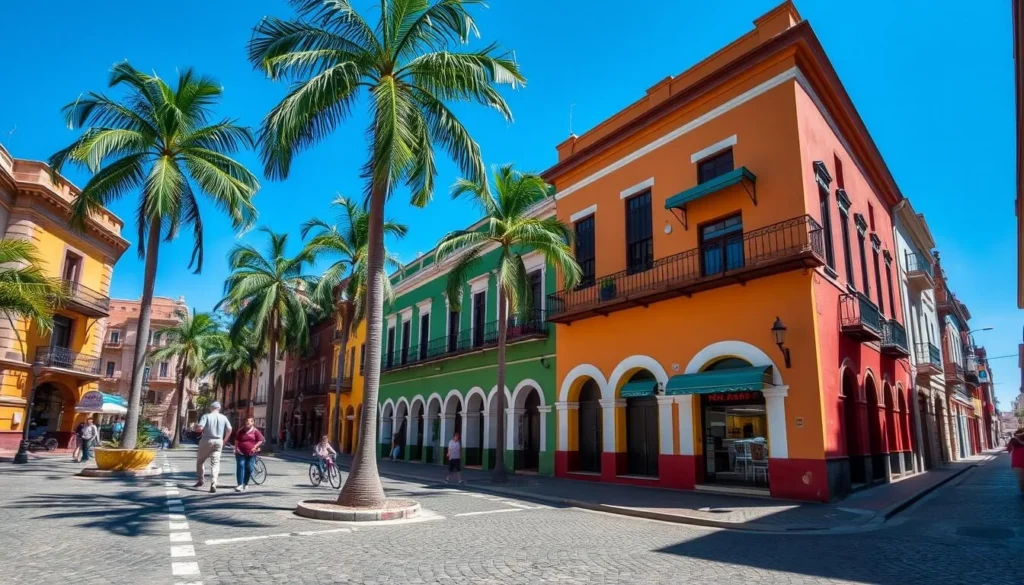
4. Discover Asunción’s Historic Center
Paraguay’s capital, Asunción, is one of South America’s oldest cities and offers a fascinating mix of colonial architecture, historic sites, and vibrant street life. Begin your exploration at the Palacio de López, the striking pink government palace that serves as the seat of Paraguay’s government.
Nearby, the Casa de la Independencia museum tells the story of Paraguay’s fight for independence, while the Panteón Nacional de los Héroes honors the country’s war heroes. For local flavor, visit Mercado 4, a massive market with thousands of stalls selling everything from street food and fresh produce to handicrafts and international goods.
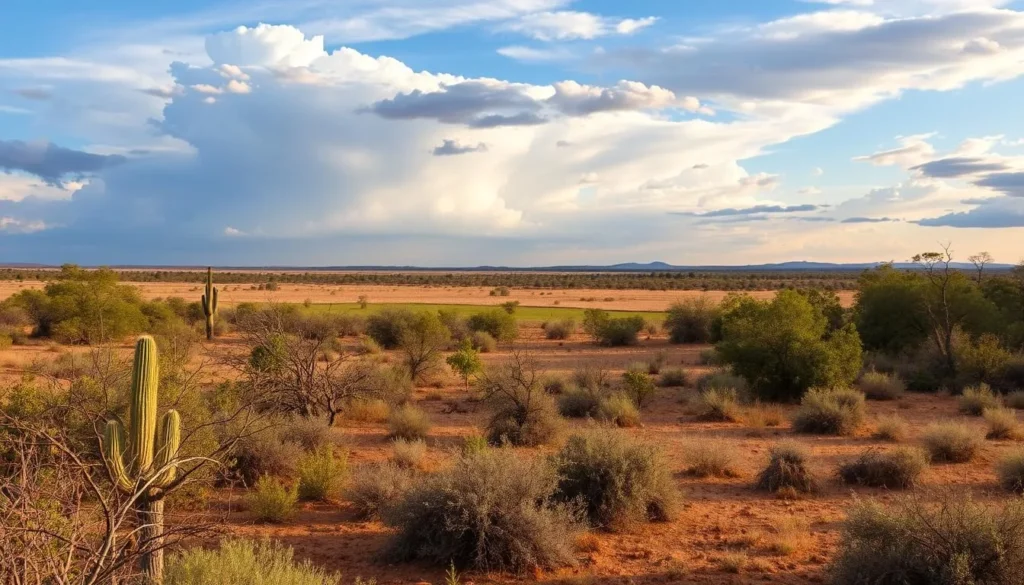
5. Adventure in the Gran Chaco
The Gran Chaco is a vast, semi-arid region covering western Paraguay that offers intrepid travelers a true wilderness experience. This biodiverse area is home to unique wildlife including armadillos, anteaters, peccaries, and over 500 bird species. The region also hosts fascinating Mennonite communities who settled here in the early 20th century.
Visit the town of Filadelfia to learn about Mennonite history at the Jakob Unger Museum, then explore the Chaco Wildlife Reserve for wildlife spotting. The best way to experience the Chaco is with a knowledgeable guide who can navigate this remote region and help you appreciate its ecological importance.
Explore Paraguay’s Natural Wonders
Book accommodations near these incredible destinations to maximize your experience.
Cultural Experiences in Paraguay
Paraguay’s unique cultural identity blends indigenous Guaraní traditions with Spanish colonial influences. Here are some essential cultural experiences to enhance your visit.
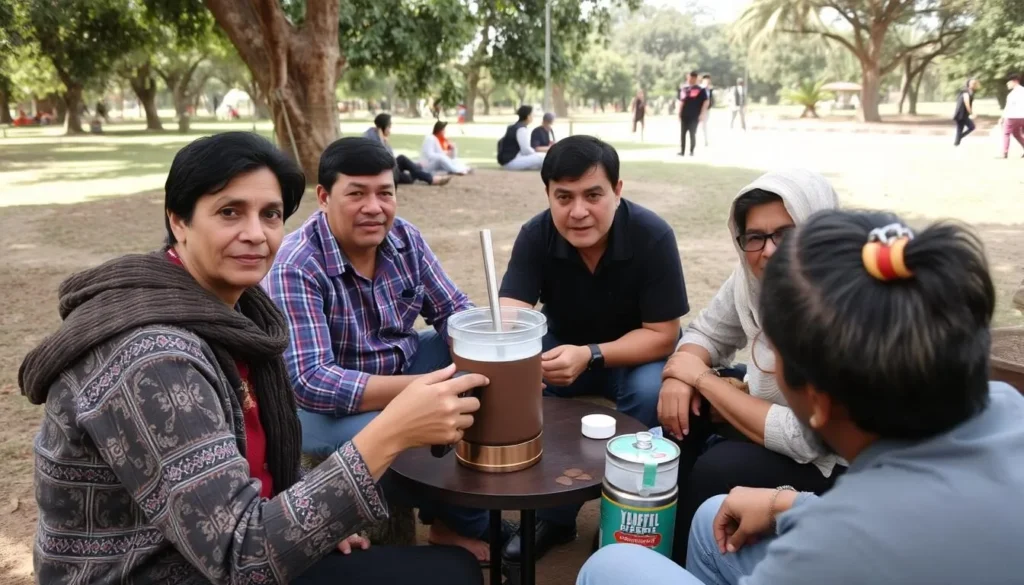
Tereré Culture
Tereré is more than just a drink in Paraguay—it’s a social ritual and cultural institution. This cold yerba mate tea is prepared by steeping yerba leaves in ice water, often infused with medicinal herbs, and shared among friends using a guampa (drinking vessel) and bombilla (metal straw).
Paraguayans gather for tereré rounds throughout the day, especially during hot afternoons. Joining locals for this social ritual offers insight into Paraguayan hospitality and daily life. You’ll see people carrying thermos bottles and guampas everywhere, from parks to offices.
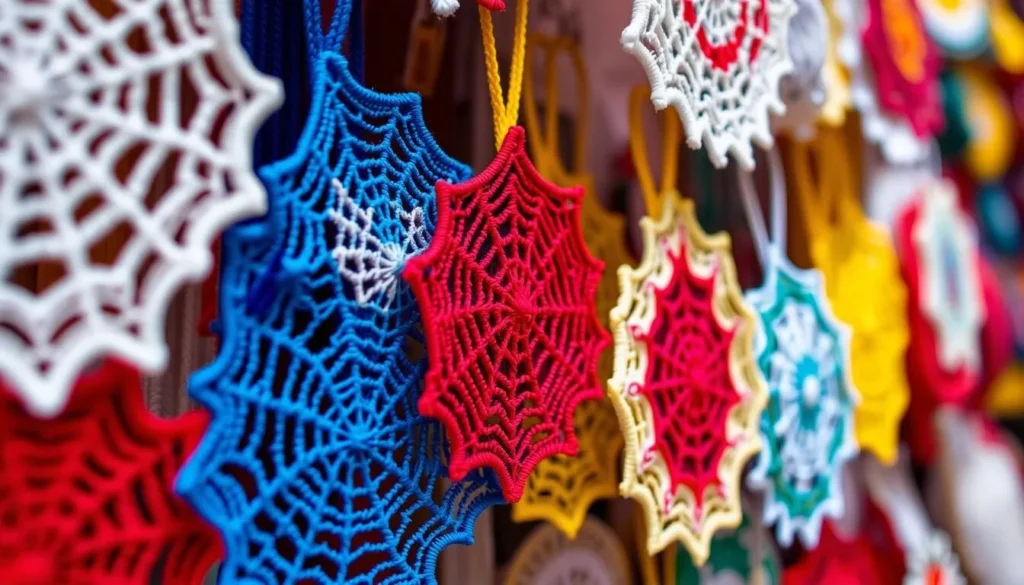
Traditional Handicrafts
Paraguay is renowned for its distinctive handicrafts, particularly ñandutí lace—an intricate spider web-like textile art with roots in both indigenous and Spanish traditions. The town of Itauguá is the center of ñandutí production, where you can watch artisans create these delicate pieces.
Other notable crafts include ao po’i (a lightweight embroidered cotton fabric), filigree silver jewelry from Luque, and carved wood items. The best places to purchase authentic handicrafts are at El Paseo Artesanal behind the Panteón in Asunción or directly from artisans in smaller towns.
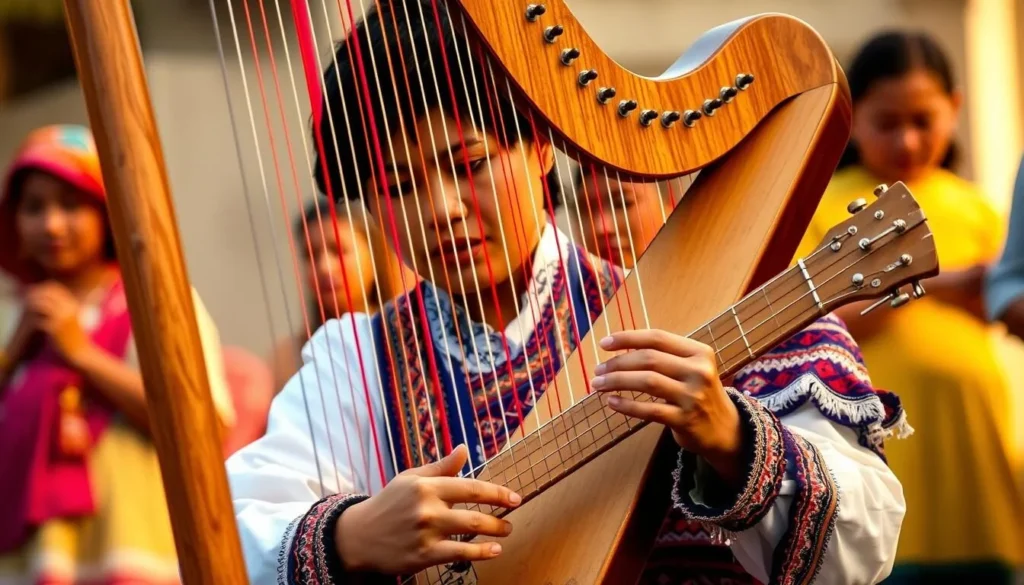
Music and Dance
The Paraguayan harp is the national instrument and central to the country’s folk music tradition. This distinctive instrument produces the characteristic sound of Paraguayan polka and guarania, the two main musical styles. Live performances can be found in cultural centers, restaurants, and during festivals throughout the country.
Traditional dances like the bottle dance (where women balance bottles on their heads while dancing) are performed during cultural events and festivals. The National Ballet in Asunción regularly stages performances showcasing these traditional art forms.
What to Eat in Paraguay
Paraguayan cuisine reflects the country’s agricultural heritage with a focus on corn, cassava (manioc), cheese, and meat. Don’t miss these traditional dishes during your visit.

Sopa Paraguaya
Despite its name meaning “Paraguayan soup,” this is actually a dense, cheesy cornbread—often called the world’s only “solid soup.” Made with cornmeal, cheese, onions, and milk, it’s a staple at every Paraguayan table and makes the perfect accompaniment to grilled meats.
Chipa
These bagel-shaped cheese bread rings are made from cassava flour, cheese, eggs, and milk. Crispy on the outside and chewy inside, chipa is sold by street vendors throughout the country and is especially popular during Easter week. It pairs perfectly with coffee or mate tea.
Bori Bori
A comforting chicken soup featuring small cornmeal and cheese dumplings. This hearty dish showcases the Spanish-Guaraní fusion that characterizes Paraguayan cuisine. It’s especially popular during cooler months and is considered a restorative food when feeling unwell.
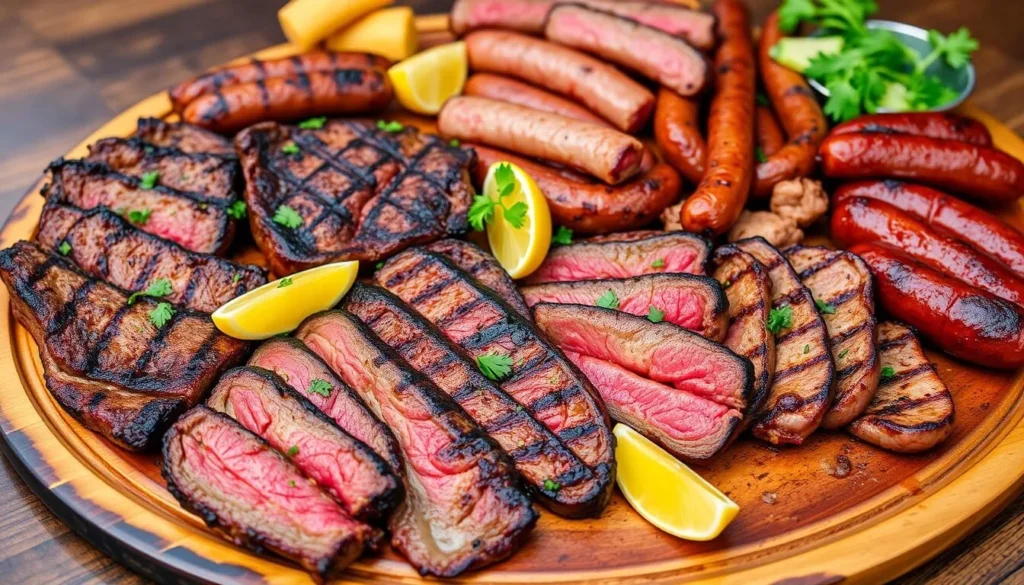
More Must-Try Dishes
- Mbeju – A starchy pancake made from cassava starch and cheese, often served for breakfast
- Vori Vori – A hearty soup with chicken and cornmeal dumplings
- Asado – Paraguayan-style barbecue featuring high-quality local beef
- Kivevé – A sweet pumpkin pudding made with cheese and corn flour
- Cocido Quemado – A hot drink made with burnt yerba mate, sugar, and milk
Experience Paraguayan Cuisine
Book a food tour or cooking class to discover the flavors of Paraguay.
Find Food Experiences
Practical Travel Information
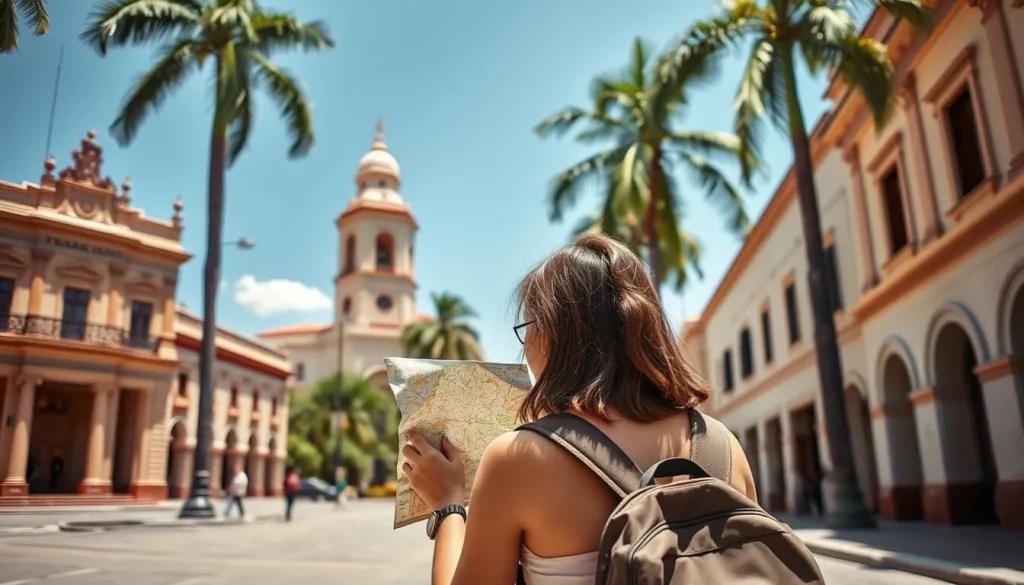
Getting There
Most international travelers arrive at Silvio Pettirossi International Airport in Asunción. Direct flights are available from major South American cities, with connections from North America and Europe. Overland entry is possible from Argentina, Brazil, and Bolivia, though border crossings can be time-consuming.
Visa Requirements
Visitors from many countries, including the US, Canada, EU nations, Australia, and New Zealand, can enter Paraguay visa-free for up to 90 days. Always check the latest requirements before traveling as regulations may change.
Getting Around
Buses are the main form of public transportation in Paraguay, connecting major cities and towns. They range from basic to comfortable air-conditioned services. For flexibility, especially when exploring remote areas like the Chaco, renting a car is recommended. In cities, taxis and ride-sharing apps like Uber and MUV are readily available.
Currency
The Paraguayan Guaraní (PYG) is the local currency. Credit cards are widely accepted in cities and tourist areas, but cash is preferred in smaller towns and rural areas. ATMs are available in major cities and towns.
Explore Paraguay Your Way
Rent a car to discover Paraguay’s hidden gems at your own pace.
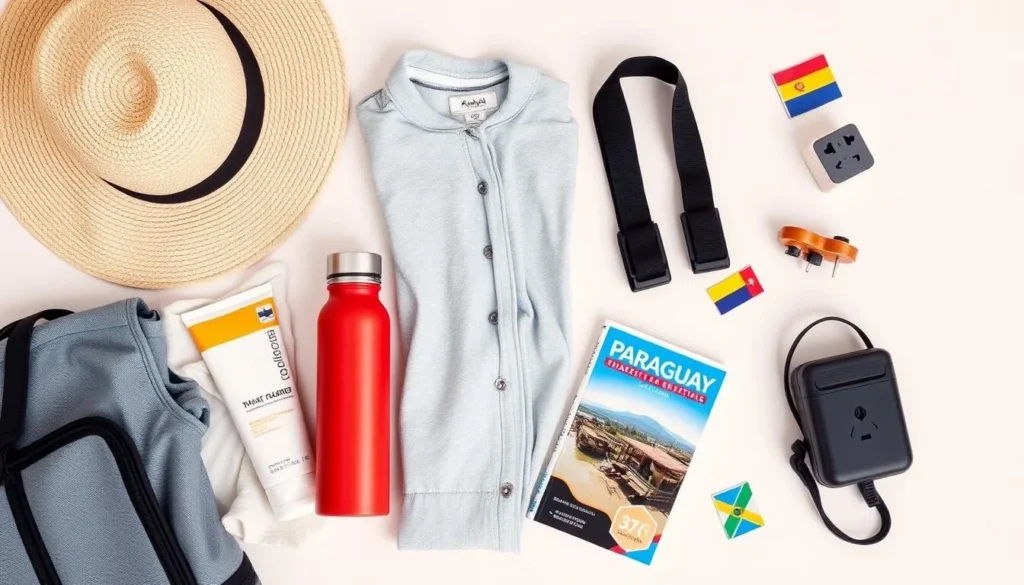
What to Pack
- Lightweight, breathable clothing – Paraguay can be extremely hot and humid
- Sun protection – Hat, sunglasses, and high-SPF sunscreen
- Insect repellent – Especially important for visits to the Pantanal and Chaco
- Light rain jacket – For unexpected showers during the rainy season
- Comfortable walking shoes – For exploring cities and natural areas
- Power adapter – Paraguay uses Type C plugs (European style)
- Spanish phrasebook – While many in tourism speak English, Spanish is helpful
Safety Tips
Paraguay is generally safe for tourists, especially compared to some neighboring countries. However, standard travel precautions apply. Keep valuables secure, be aware of your surroundings in cities, and avoid displaying expensive items. The most common issues travelers face are petty theft and street scams in urban areas.
Healthcare facilities are good in major cities but can be limited in rural areas. Travel insurance with medical coverage is strongly recommended. Tap water is generally not safe to drink—stick to bottled or purified water.
Where to Stay in Paraguay
From boutique hotels in historic buildings to eco-lodges in natural settings, Paraguay offers a range of accommodation options to suit different budgets and preferences.
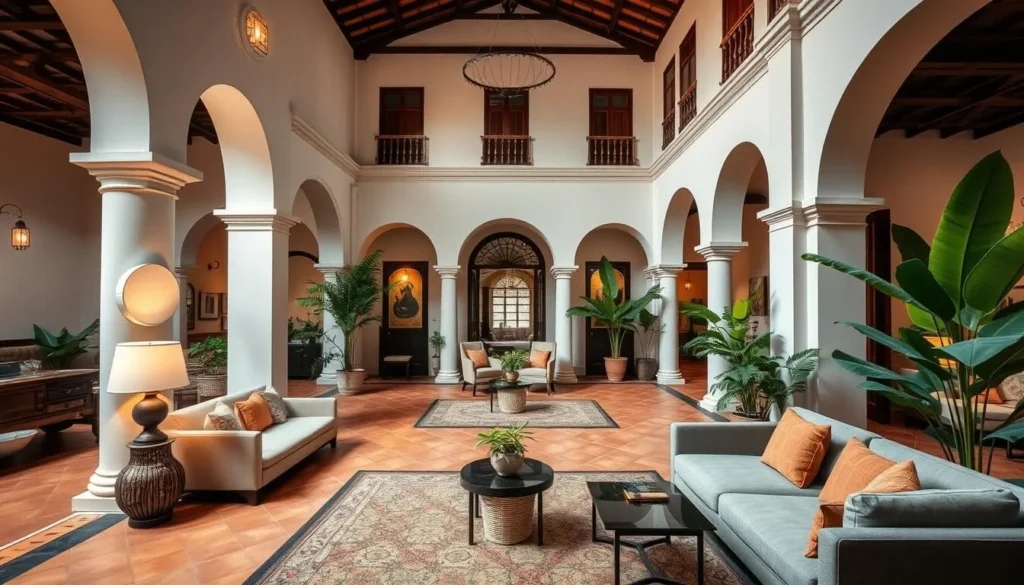
Asunción
Paraguay’s capital offers the widest range of accommodations, from international chain hotels to charming boutique properties in restored colonial buildings. The downtown area puts you close to historic sites, while the upscale Villa Morra and Carmelitas neighborhoods offer modern amenities and proximity to shopping and dining.
Recommended areas: Historic Center, Villa Morra, Carmelitas
Encarnación
Known as the “Pearl of the South,” Encarnación offers beachfront hotels along the Paraná River and comfortable options near the Jesuit Missions. During Carnival season (February), book well in advance as accommodations fill quickly.
Recommended areas: City Center, San José Beach area
The Chaco
Accommodations in the Chaco region are limited but include unique options like estancias (ranch stays) and eco-lodges. The towns of Filadelfia and Loma Plata offer basic but comfortable hotels run by the Mennonite communities.
Recommended areas: Filadelfia, Loma Plata
Find Your Perfect Stay in Paraguay
Browse a wide selection of hotels, guesthouses, and unique accommodations.
Suggested Paraguay Itinerary
Make the most of your visit with this 10-day itinerary covering Paraguay’s highlights.
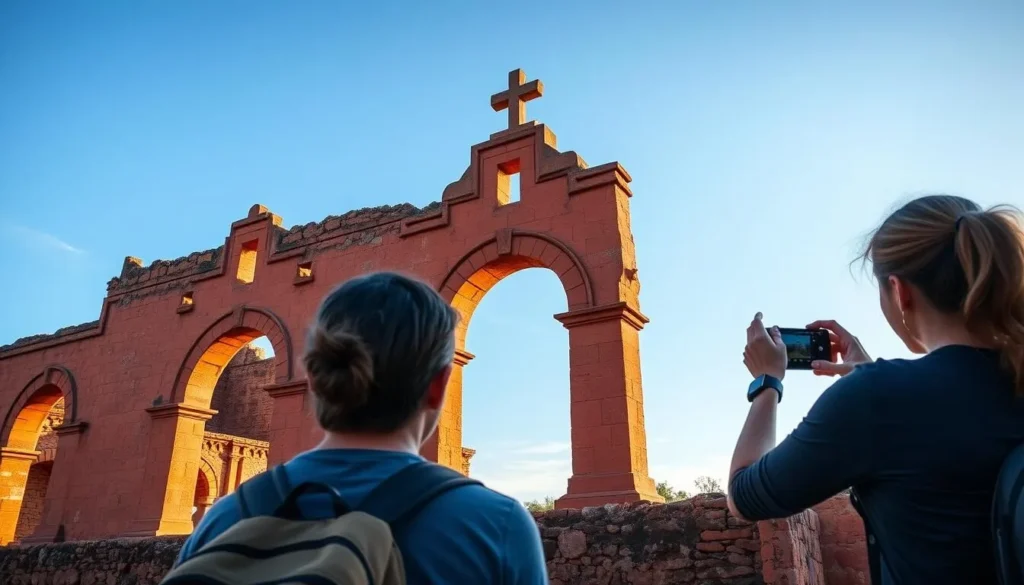
| Day | Location | Highlights |
| 1-3 | Asunción | Explore the historic center, visit the Palacio de López, Casa de la Independencia, and Mercado 4. Take a day trip to San Bernardino for lake activities. |
| 4-5 | Ciudad del Este & Itaipu | Visit the impressive Itaipu Dam, explore Saltos del Monday waterfall, and experience the bustling border city. |
| 6-7 | Encarnación & Jesuit Missions | Explore the UNESCO World Heritage Jesuit Missions of Trinidad and Jesús. Enjoy the riverfront promenade and beaches of Encarnación. |
| 8-10 | The Chaco | Wildlife watching in Defensores del Chaco National Park, visit Mennonite communities in Filadelfia, and experience the unique ecosystem of this remote region. |
Make This Itinerary a Reality
Book guided tours and activities to enhance your Paraguay experience.
Browse Activities & Tours
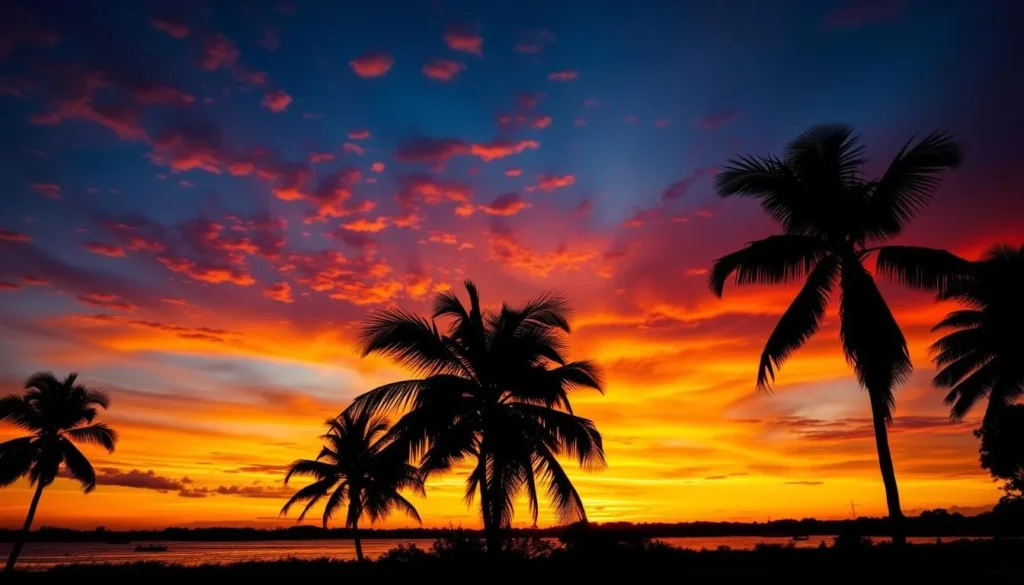
Experience Paraguay’s Hidden Treasures
Paraguay may not top the list of South American destinations, but that’s precisely what makes it special. Without the crowds of its more famous neighbors, you’ll discover a country where traditions remain authentic, nature is unspoiled, and visitors are welcomed with genuine warmth and curiosity.
From the architectural wonders of the Jesuit Missions to the wild expanses of the Chaco, from the vibrant culture of Asunción to the tranquil waters of the Pantanal, Paraguay offers experiences that will surprise and delight even the most seasoned traveler. Pack your sense of adventure and discover one of South America’s best-kept secrets before everyone else does!
Ready for Your Paraguay Adventure?
Start planning your journey to this unique South American destination today.
Discover Activities
The above is subject to change.
Check back often to TRAVEL.COM for the latest travel tips and deals.
